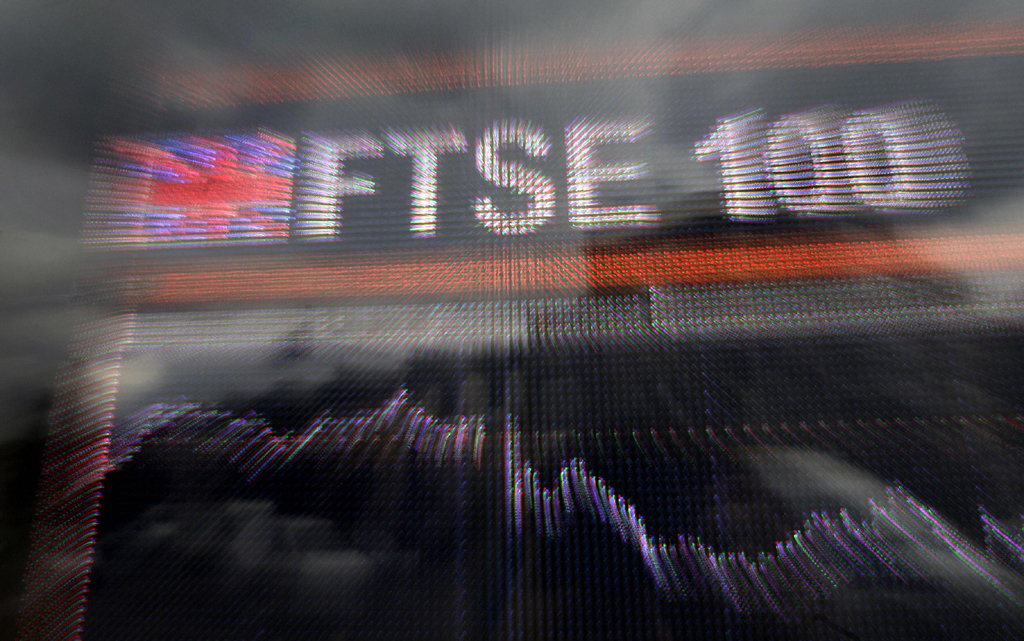 UK shares fell on Monday, as a profit warning from online fashion store ASOS reverberated across Europe and reinforced woes about slow sales during the busy holiday season, adding to the pre-Christmas gloom already compounded by Brexit worries.
UK shares fell on Monday, as a profit warning from online fashion store ASOS reverberated across Europe and reinforced woes about slow sales during the busy holiday season, adding to the pre-Christmas gloom already compounded by Brexit worries.
The UK blue-chip bourse was down 0.2 percent at 1005 GMT, while the domestically focused mid-cap index was down 0.6 percent.
"After a pretty turbulent few trading days last week, investors head into the last full trading week of 2018 in a somewhat cautious fashion," said CMC Markets UK chief analyst Michael Hewson.
"Investor's main concerns remain centred around political stability and economic weakness, after disappointing economic data out of Europe, China and Japan last week.
News that AIM-listed ASOS cut its full-year targets after a weaker-than-expected November set the tone for the market on Monday, showing how online-only clothing retailers were not immune to a growing crisis in the UK retail sector.
It follows weak outlooks from other big UK high street names, including Dixons Carphone and Sports Direct . Last week Sports Direct owner Mike Ashley said trading in November was "unbelievably bad".
The shares plunged over 40 percent to their lowest in nearly four years, knocking roughly 1.5 billion pounds off the company's market value and taking its year-to-date losses to 64 percent.
Among big fallers on the main index were high street retailers Next, Marks & Spencer and Kingfisher , down 3 percent, 4.3 percent and 2.9 percent respectively. Internet food store Ocado was down 4.3 percent.
Consumer products group Reckitt Benckiser was among the top drags, with a 1.1-percent fall.
ASOS rival Boohoo fell as much as 18 percent at the open, before recouping some losses after it reported record Black Friday sales. It was down 10.2 percent.
High street chains were the worst performers on the mid-cap index, with JD Sports Fashion dropping nearly 4.9 percent and Dixons losing 4.2 percent.
Also weighing on investor confidence was property data showing that asking prices suffered their biggest fall over a two-month period since 2012.
Brexit-sensitive housebuilders Persimmon and Berkeley were each down 3 percent.
Financials were the biggest drags on the main index with heavyweight Prudential giving up 1.4 percent and Barclays 1.5 percent.
In single moves, Shire was the top drag on FTSE 100 following a downgrade of Takeda by rating agency Moody's, citing that its takeover of Shire will cause the Japanese drugmaker's debt to increase almost six-fold.
GVC shares were down 4 percent, easing some of last week's gains, ahead of a parliamentary vote this week on maximum stakes on fixed-odds betting terminals.
Oil and related stocks also fell as crude prices remained under pressure amid weaker growth in major economies and concerns about oversupply.
Shares in energy provider SSE gave up 2 percent after it scrapped a deal with Innogy SE for a tie-up that would have created UK's second biggest retail power provider as the companies failed to agree on revised terms.
Outperforming the index was the world's biggest miner, BHP , with a 3 percent gain after it announced a $1.02 per share special dividend, delivering on an earlier promise to hand back all of the proceeds from the sale of its US shale business.
Peers Rio Tinto, Glencore and Anglo American all rose between 1.2 percent and 1.7 percent.
In mid-caps, oilfield services provider Hunting Plc was down 5.6 percent after it said it expects project deferrals from producers due to the recent plunge in crude prices.
That dragged shares in Wood Plc by over 3 percent.























Comments
Comments are closed.